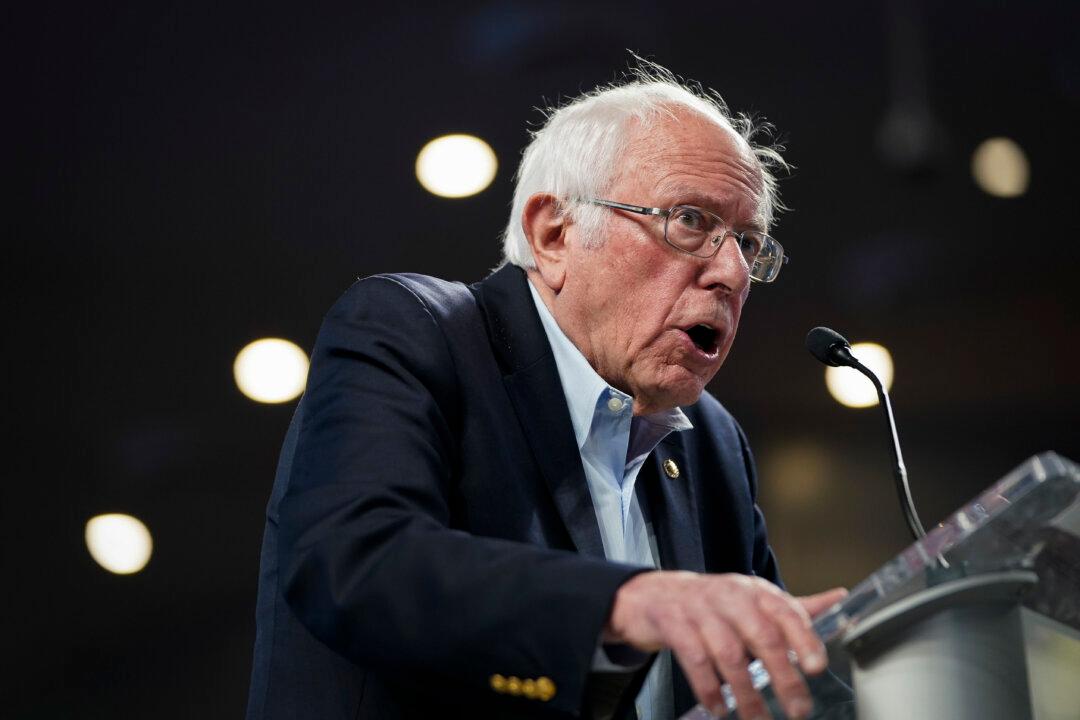Sen. Bernie Sanders (I-Vt.) released a fact sheet on Feb. 24 detailing how he would pay for his proposals, moments after announcing he would do so during a CNN town hall in South Carolina.
The presidential candidate said he would be publishing the plans detailing how he will pay for ambitious proposals like Medicare for All, the Green New Deal, and canceling student debt, by way of distinguishing himself from Trump’s campaign.




